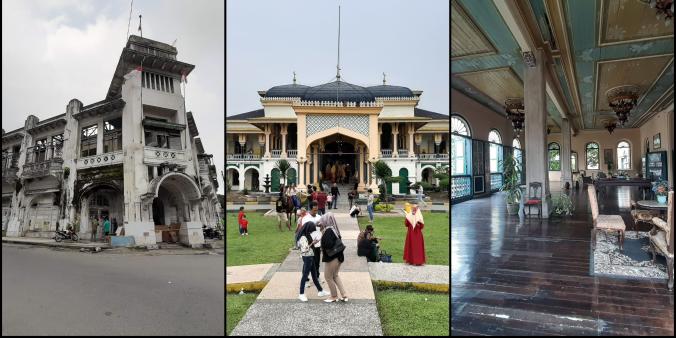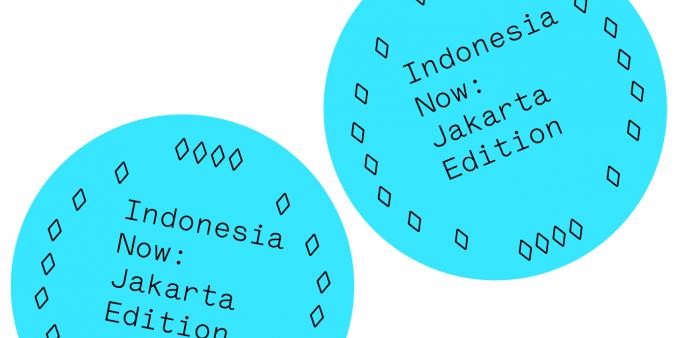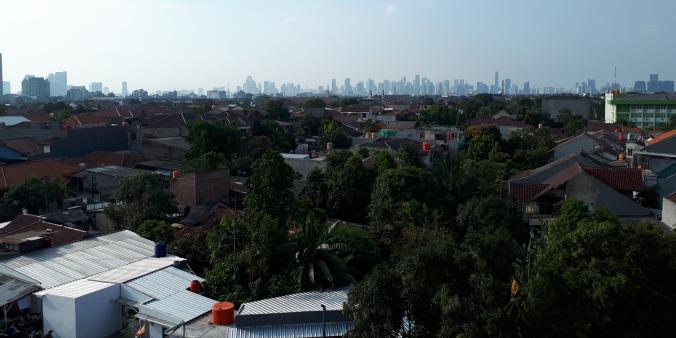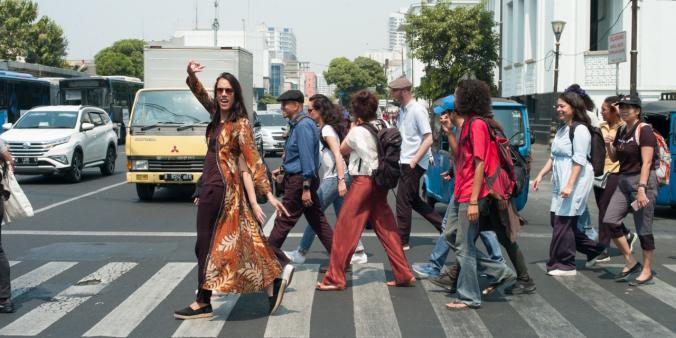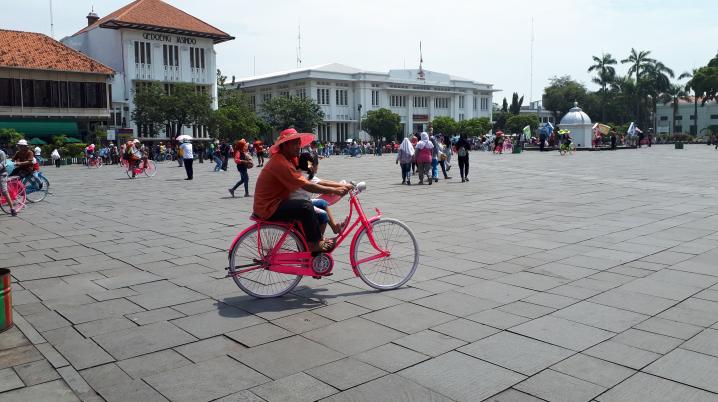
Indonesia Now 2019 – a fruitful exchange of knowledge
It’s a Tuesday morning at cultural centre De Brakke Grond in Amsterdam, and the Indonesian ambassador to the Netherlands, Gusti Agung Wesaka Puja – known affectionately as Pak Puja – is rocking out on stage to the seminal track The Final Countdown by Europe. Earlier during his somewhat unorthodox speech, he treated the audience to renditions of Lean On Me and If You Don’t Know Me By Now. The latter is perhaps most telling, as the ambassador is known for enhancing his presentations with musical interludes.
“It might seem odd to people who don’t know him,” says moderator Remco Vermeulen of DutchCulture, “but this might just be a perfect example of the differences between Western and Indonesian culture. Just think about it. Music isn’t only for entertainment purposes. It’s a part of everyday life. It can be utilised as a tool to help convey important messages. Believe me, the ambassador knows exactly what he’s doing.”
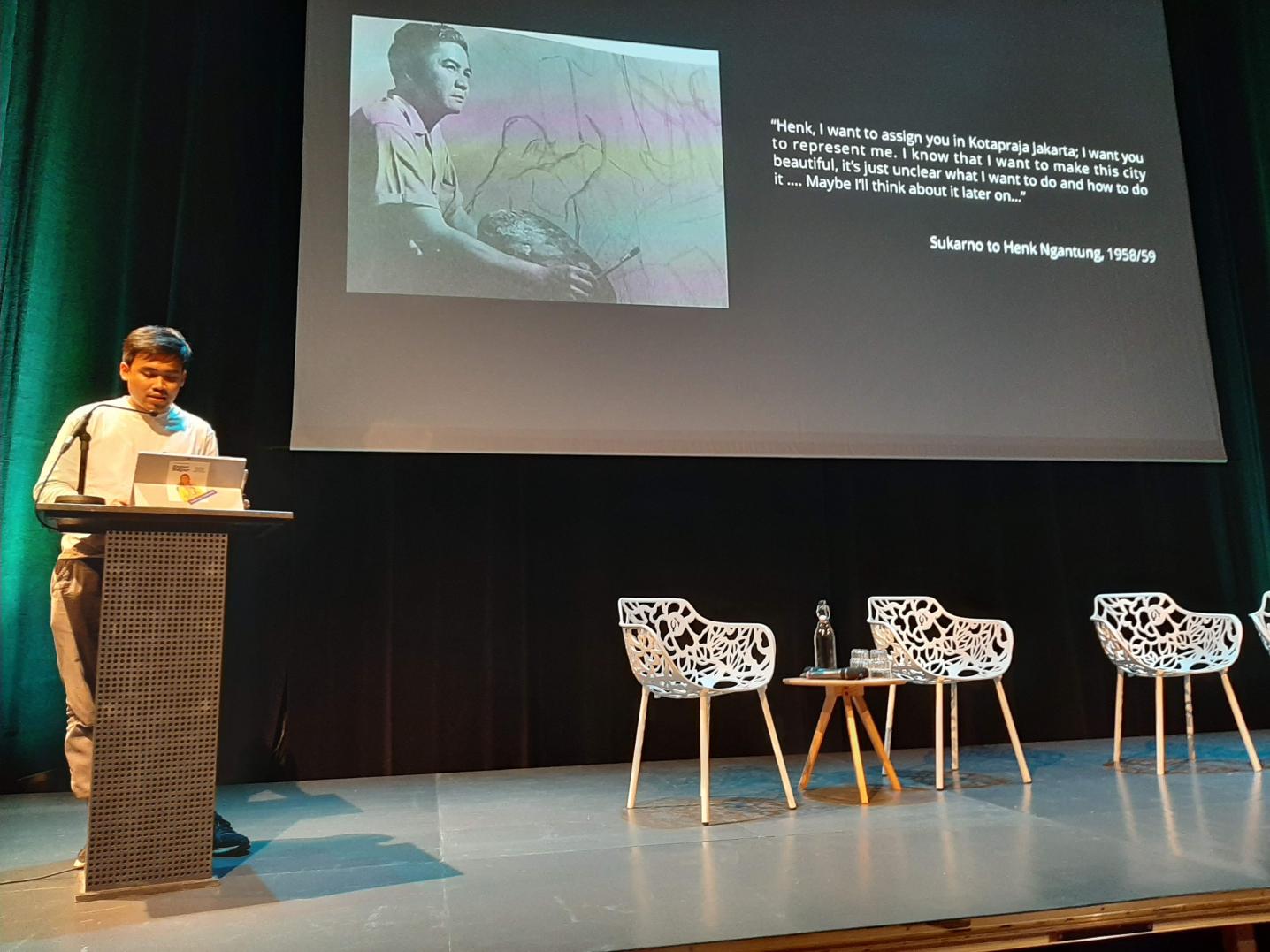
Fruitful exchanges
During this third edition of the Indonesia Now conference, organised by DutchCulture and the Netherlands Ministry of Foreign Affairs, there are many opportunities to explore the differences in culture. But moreover, the day is about collaboration, fruitful exchanges, shared interests and a mutual appreciation for the special relationship between Indonesia and the Netherlands.
Max Valstar, Head of the South and Southeast Asia and Oceania Division at the Netherlands Ministry of Foreign Affairs: “Building on our shared history, Indonesia and The Netherlands have a bright future together. I think that the Netherlands and Indonesia can be very meaningful to one another – even more so than we already are. The main purpose of a day like today is to look ahead. The fact that we already know each other, have the same legal systems and understand each other's needs, allows us to go the extra mile. We're both trade nations, and we both place importance on the international rules based order. Together we can help to establish and maintain this, each from our side of the world. This is what we're setting out to discover, as a joint mission.'
Hot topic
One of the hot topics of the day is the relocation of the Indonesian capital Jakarta to Borneo. Interestingly, the subject appears to be higher on the agenda in the West, than in Indonesia. “It really struck me that the moment I landed at Schiphol airport, everyone began talking about this,” says Professor of Internal Relations at the University of Amsterdam Roel van der Veen. “Whereas most people in Indonesia really aren’t that concerned. There isn’t a sense of urgency, or even of a major event about to take place. In the Netherlands, it would surely lead to a broad public debate. But that’s not how things are done in Indonesia. When the relocation of the capital was announced by the president, it came completely out of the blue. And it’s still a bit of a secret project – the details are only being discussed within a very select group.”
Van der Veen disagrees with the terminology ‘relocating Jakarta’. “As if 30 million people are going to be moved to Borneo. Clearly, that would be impossible. The majority isn’t going anywhere,” he says. “Of course some neighbourhoods will flood, and there will be increasing issues involving water management. But people have always found a way. They build dikes and seawalls, raise the land and elevate areas. Jakarta will still be Jakarta, and probably some people will move… but all in good time.”
Climate change
As for offering a solution to some of the climate change issues, Van der Veen remains critical of the plan. “Even if a new capital is created on Borneo, it still leaves Jakarta,” he says. “It’s not really solving anything. Jakarta will continue to require investments, whether the official capital moves elsewhere, or not. Environmentally, I think there will be an increase in issues when you create a new capital city. If everyone started using bikes for transportation, like in the Netherlands, that would have an impact. But the general population has other issues to deal with. Personally, I find Jakarta very functional as it is. So I’m afraid I don’t have high hopes where the Borneo project is concerned. I think it will be more symbolic, with lots of talk of ‘visionary developments’, creating a legacy for the president. But it certainly doesn’t mean much to the average man on the street.”
Secretary General of PPI Belanda (the Indonesian Student Association in the Netherlands) Bhagasjati Kusuma, known to his friends as Aga, agrees that the environment isn’t currently one of Indonesia’s most pressing issues, even for young people. “Unfortunately, we have much more urgent matters on hand than dealing with rain forests and orang-utans,” says the 20-year old student of International Relations, one of the youngest delegates of the day and a speaker during the Youth & Social Change breakout session. “Personally, my biggest concerns are democracy, free speech, human rights, and where the country is going,” he says. “I think there’s a huge divide between people who side with the Islamists and people who lean toward nationalism. Recent months have also seen the rise of a youth movement. I’m not sure where this is headed in the next decade, but I’m pretty sure there will be more conflict. Whether this is good or bad, remains to be seen.”
Kusuma says there is a lot of discussion with his peers on president Joko Widodo’s second term, and how the nation needs to move forward. “It’s important that we don’t take democracy for granted. All over the world, even in Europe, there has been democratic backsliding. Just look at what’s been happening in Hungary and Poland. Indonesia seems to be headed the same way, where there is more focus on economic development, and less on human rights and democracy. With everything that’s going on, the environment is being left out of the discussion.”
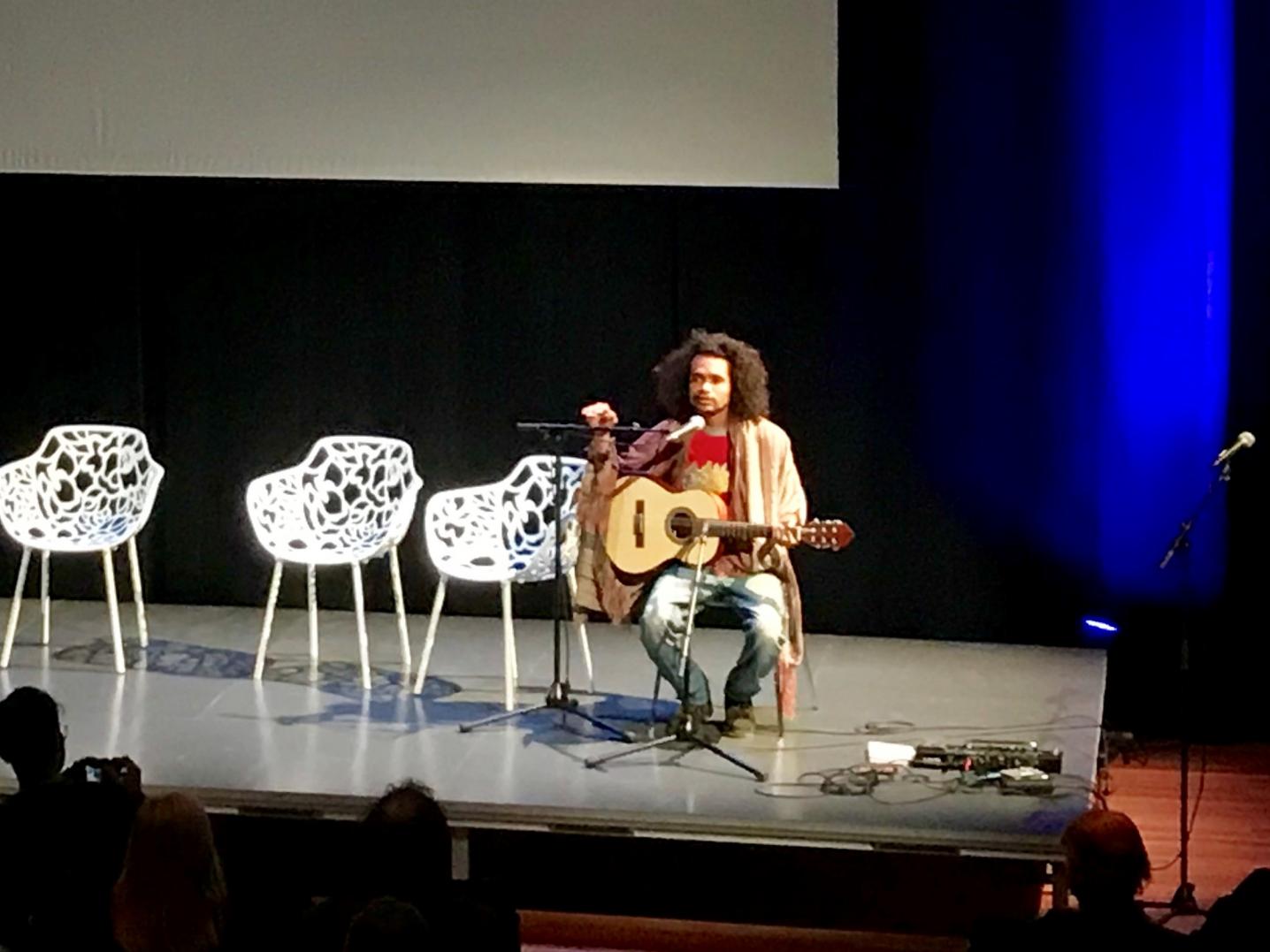
Political developments
Keynote speaker Leila Chudori, author, journalist and screenwriter for film and television, has major concerns about the current political developments in her native country as well. For her, 1998 (the year when president Suharto resigned) formed a highlight in Indonesian history. “We never dreamed the president would resign, but when he did, everything seemed to fall into place. It was a time when everyone wanted democracy, an opportunity to start with a clean slate. Parliament was elected, we eradicated the censorship by the Minister of Information and had free press… For ten years, the future seemed wide open. We became a shining example, and the envy of countries like Malaysia, Singapore and the Philippines. People were filled with hope, especially when president Joko Widodo was elected – because he was a civilian and not from a political dynasty. But now that he has started his second term, the mood is less optimistic. The current cabinet and many of the laws that they have passed are quite scary. The proposed Criminal Code, for instance, is absolutely crazy: you can be jailed for having premarital sex, for undergoing an abortion or for leaving the house after 10pm as a woman… These are things that impact our day-to-day life. Because of my work in journalism and literature, I’m still able to voice my opinions and concerns. But the outlook is bleak. Journalists risk being sued, and the freedom of the press is under constant pressure. It will be very interesting to see where Indonesia stands by the time the next conference is held, two years from now.”
New ways of bilateral cooperation
Still, not everyone feels under threat by the recent changes in Indonesia. Delegate Feli Napraiseti is filled with excitement and optimism. A participant of DUTEP, the Dutch Training & Exposure Programme (which is supported by the Dutch embassy in Indonesia and partners from education, business and government), her Integrated Water Oriented Transit Area programme recently won the DUTEP Water Challenge. It stands to be implemented in 2020. “I decided to follow the programme because I’m interested in urban issues,” she says. “In Jakarta, we have problems with flooding, land subsidence and urban heat due to climate change. I wanted to learn more about how the Netherlands deals with these issues, because much of the country is below sea level. The Netherlands is famous all over the world for their water management, and their innovation in the field of climate change.”
The programme is a prime example of new ways of bilateral cooperation, in which higher education, the corporate sector and the government work closely together to contribute to the success of the programme. “I really like this collaboration between our two countries,” says Napraiseti. “It’s not as if the Dutch come to Indonesia and tell us what to do – they have a genuine interest in learning about our problems and how it affects the locals. It’s a constructive dialogue. Our country has been through a lot: poverty, war, occupation… and now climate change. But Indonesians have a way of making the best of a bad situation. We try to stay positive and enjoy life, even if the circumstances are far from good. Of course we’re also realistic, and facing up to the facts means we need to make sure our cities remain liveable. I feel our country is improving. Politically things are shifting, and in my opinion we are making progress on our way to democracy. I’m very optimistic about our future.”
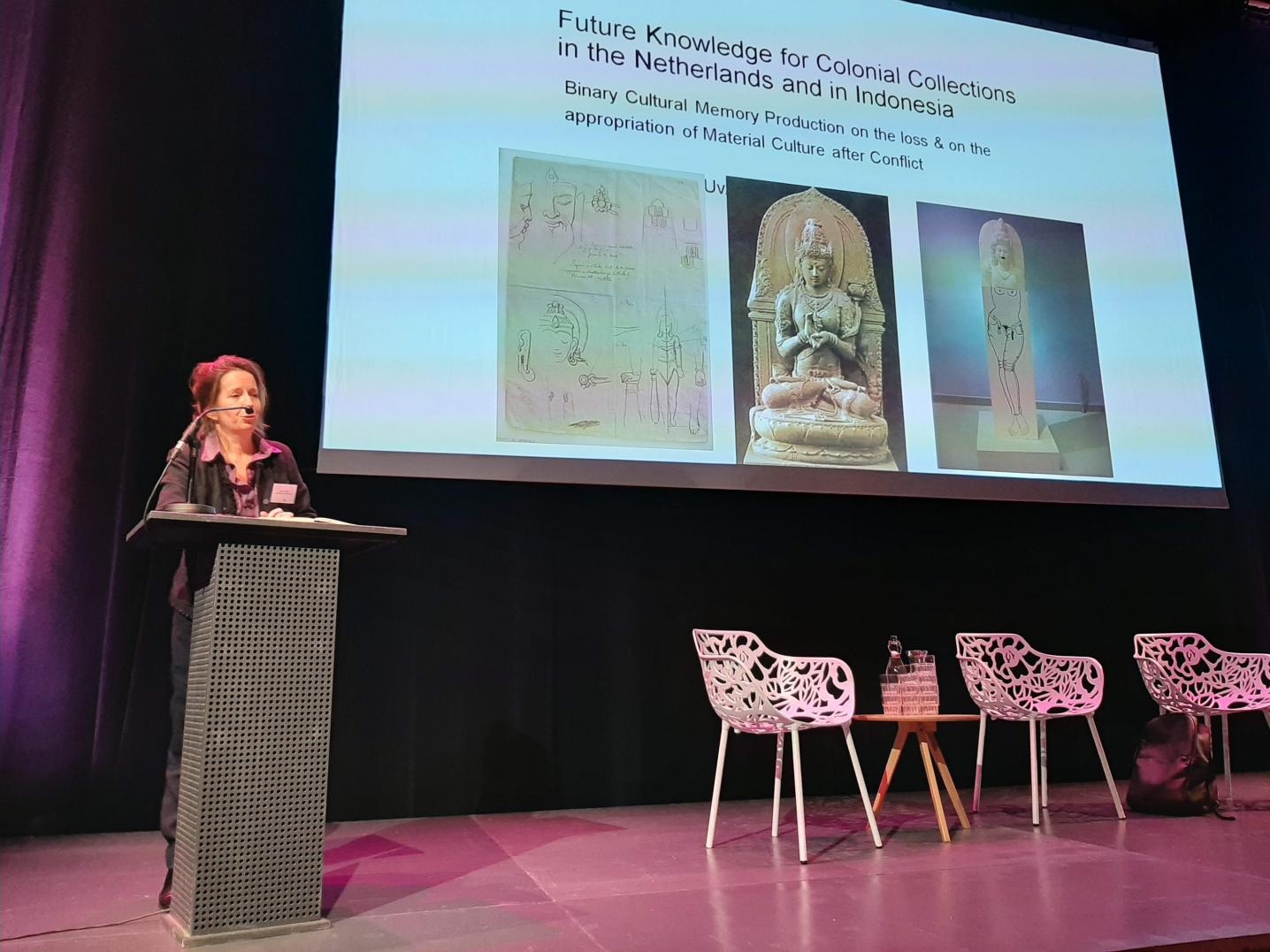
Special bond
At the end of the day, Lambert Grijns, the Netherlands ambassador to Indonesia, feels the event was a success. “What struck me is how many young people attended the conference. It’s clear that they feel a connection between the Netherlands and Indonesia. These are two countries that share a very special relationship with one another. It runs deeper than connections between other nations. And this has everything to do with interpersonal relationships. Of course there are business ties, political ties, shared culture… but more than that, there is a special bond that draws us together as human beings. We call this ‘soft power’. It’s a manner of positively influencing culture, economics and politics. Not by implementing policy or programmes, but simply by utilising personal involvement.”
Events like Indonesia Now remain important, according to Grijns. Because, in spite of our mutual fascination for one another, there is also still much we can learn. “The Dutch tend to be very outspoken,” he says. “And in being so, we sometimes forget to listen to our Indonesian counterparts – whose silence can be quite meaningful. At the same time, food, music, dance and artistic expression are deeply rooted in Indonesian culture. Which is entirely different from the Dutch no-nonsense, businesslike approach.” And as an example: “The way ambassador Pak Puja presented himself earlier today is perfectly normal by Indonesian standards. Even more so: it’s his way of showing us how much he feels at ease. Consider it a personal tribute to the Dutch. And a confirmation of the solid relationship between our two countries.”
Check out the complete overview of Dutch cultural activities in Indonesia.
If you are a cultural professional who wants to go to Indonesia, to perform, present or exhibit or to co-create with Indonesian colleagues, feel free to contact our Indonesia advisor Remco Vermeulen.
For funding possibilities, check out our Cultural Mobility Funding Guide, or the websites of our partners Mondriaan Fund, Het Nieuwe Instituut, Creative Industries Fund NL, Cultural Participation Fund or Dutch Film Fund. Prince Claus Fund and ASEF culture360 also have interesting opportunities.
